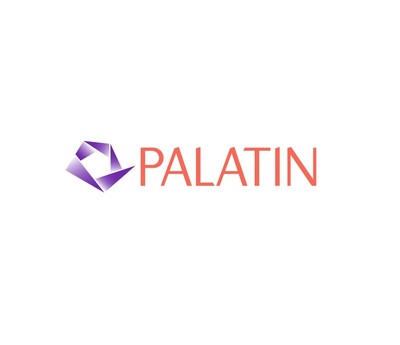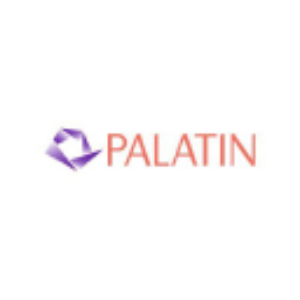Palatin Completes Enrollment in Phase 3 MELODY-1 Study of PL9643 For the Treatment of Patients with Dry Eye Disease
- None.
- None.
Insights
Analyzing...
- Topline data currently expected late 4Q calendar 2023
- Interim analysis of first 120 patients demonstrated:
- Excellent safety and tolerability product profile
- Potential for PL9643 to address multiple signs and symptoms of dry eye disease
"We are committed to addressing unmet needs of DED patients. We believe that PL9643, with its novel mechanism of action and differentiated product profile for efficacy, safety and ocular tolerability, if approved, will be a first-in-class treatment option for the millions of patients who suffer from DED," said Carl Spana, Ph.D., President and CEO of Palatin. "We are optimistic about results of the Phase 3 PL9643 data based on the positive interim analysis and are pleased to have completed enrollment so promptly. I thank the patients, investigators, clinical site staff, and our employees for achieving this important milestone."
Palatin previously announced positive interim analysis data and recently presented portions of this data at the ARVO 2023 conference in April 2023. The excellent ocular tolerability and efficacy across multiple signs and symptoms of DED distinguishes PL9643 from currently approved treatments for DED.
Michael Raizman, MD, practicing ophthalmologist and Chief Medical Officer of Palatin, stated, "Given the key role melanocortins play in the resolution of inflammation, we are very encouraged by the findings in the Phase 2 study and the interim analysis of the initial 120 patients in the Phase 3 study, which demonstrated the potential for PL9643 to address both signs and symptoms associated with DED as a possible treatment for the millions of patients not satisfied with current commercial therapies."
Topline data for the PL9643 MELODY-1 Phase 3 Study is anticipated by the end of the fourth quarter of calendar year 2023. Assuming positive results, the remaining Phase 3 studies are expected to be completed by the end of calendar year 2024 and early calendar year 2025, with a New Drug Application submission to the
The pivotal Phase 3 MELODY-1 clinical study, being conducted in the
About Dry Eye Disease (DED)
Dry eye disease is a common inflammatory disease that, left untreated, can become extremely painful and lead to permanent damage to the cornea and vision. DED affects the cornea and conjunctiva of the eye resulting in irritation, redness, pain, and blurred vision. It is estimated to affect over 20 million people in
About Melanocortin Receptor Agonists and Inflammation
The melanocortin receptor ("MCr") system has effects on inflammation, immune system responses, metabolism, food intake, and sexual function. There are five melanocortin receptors, MC1r through MC5r. Modulation of these receptors, through use of receptor-specific agonists, which activate receptor function, or receptor-specific antagonists, which block receptor function, can have medically significant pharmacological effects. Many tissues and immune cells located throughout the body, including the gut, kidney and eye, express melanocortin receptors, empowering our opportunity to directly activate natural pathways to resolve disease inflammation. Drugs based on melanocortin agonists have been approved by the FDA for treating several conditions, including female sexual dysfunction, inflammatory/autoimmune diseases, and rare forms of genetic obesity.
About Palatin
Palatin is a biopharmaceutical company developing first-in-class medicines based on molecules that modulate the activity of the melanocortin receptor systems, with targeted, receptor-specific product candidates for the treatment of diseases with significant unmet medical need and commercial potential. Palatin's strategy is to develop products and then form marketing collaborations with industry leaders to maximize their commercial potential. For additional information regarding Palatin, please visit Palatin's website at www.Palatin.com and follow Palatin on Twitter at @PalatinTech.
Forward-looking Statements
Statements in this press release that are not historical facts, including statements about future expectations of Palatin, such as statements about PL9643 results, anticipated dates, and potential markets, are "forward-looking statements" within the meaning of Section 27A of the Securities Act of 1933, Section 21E of the Securities Exchange Act of 1934 and as that term is defined in the Private Securities Litigation Reform Act of 1995. Palatin intends that such forward-looking statements be subject to the safe harbors created thereby. Such forward-looking statements involve known and unknown risks, uncertainties and other factors that could cause Palatin's actual results to be materially different from its historical results or from any results expressed or implied by such forward-looking statements. Palatin's actual results may differ materially from those discussed in the forward-looking statements for reasons including, but not limited to, results of clinical trials, regulatory actions by the FDA and other regulatory and the need for regulatory approvals, Palatin's ability to fund development of its technology and establish and successfully complete clinical trials, the length of time and cost required to complete clinical trials and submit applications for regulatory approvals, products developed by competing pharmaceutical, biopharmaceutical and biotechnology companies, commercial acceptance of Palatin's products, and other factors discussed in Palatin's periodic filings with the Securities and Exchange Commission. Palatin is not responsible for updating events that occur after the date of this press release.
Palatin Technologies® is a registered trademark of Palatin Technologies, Inc.
![]() View original content to download multimedia:https://www.prnewswire.com/news-releases/palatin-completes-enrollment-in-phase-3-melody-1-study-of-pl9643-for-the-treatment-of-patients-with-dry-eye-disease-301920280.html
View original content to download multimedia:https://www.prnewswire.com/news-releases/palatin-completes-enrollment-in-phase-3-melody-1-study-of-pl9643-for-the-treatment-of-patients-with-dry-eye-disease-301920280.html
SOURCE Palatin Technologies, Inc.








